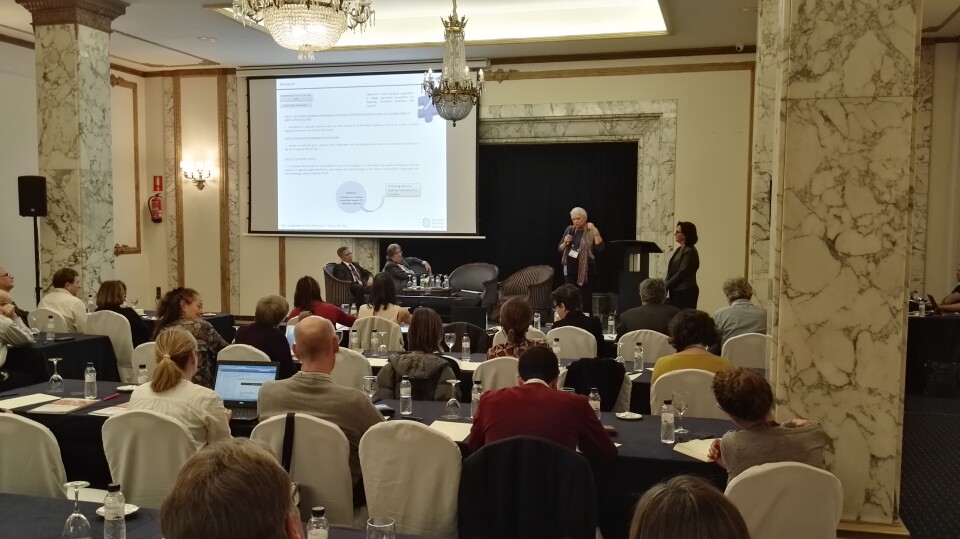Impact of new technologies on diagnosis and treatment of anemias highlighted in scientific meeting

Hematologists from 18 countries and 4 continents learned more about the new techniques for diagnosis and treatment of anemias during the EHA-SWG Scientific Meeting on Anemias on February 2-4, 2017 in Barcelona, Spain.
The meeting was greatly appreciated with 82% of the delegates saying they would highly recommend it to their colleagues. The same percentage indicated that the objectives (acquire knowledge about diagnosis, new diagnostic techniques, and treatment updates) were achieved. The conference was assessed by delegates with an average score of 8,2 (out of 10).
Meeting Chair Professor Achille Iolascon called it a “cutting-edge workshop” where “presentations were highly complementary, dealing with both clinical and biological aspects of anemias”. The program covered anemias related to bone marrow failure, iron metabolism defects and related microcytic anemias. The necessity for clear rules on the application of NGS technologies to the diagnosis of rare anemias became clear during the discussions.
Prof Iolascon added, “It has been a highly stimulating scientific meeting, bridging the basic/translational research to ongoing clinical trials. The delegates from various countries shared different scientific interests, experiencing extensive discussion and exchanging ideas. It was even suggested that such a format could and should be repeated.”
Most of the sessions consisted of lectures by invited speakers and some sessions included one or more self-assessment cases as part of the speaker’s lecture. Participants took an active part in these sessions by using a voting box. Also on Thursday afternoon, authors of the seven most interesting clinical case summaries presented their cases and discussed them with the faculty and the audience. In addition, case pitches (3-minute presentations by case submitters) provided an excellent opportunity for young hematologists to present their work to an audience of experts.
A round table discussion focused on “Rare anemias and European Network for rare disease from patient’s perspective” with the participation of patient associations. The round table highlighted the unmet needs of health professionals and scientists in developing more therapies and be more active in advocacy.
Case presenter Ayman Youssef from Egypt appreciated the efficient organization of the event as well as the content of the meeting, “The program was clear, talks were appropriately spaced and scientific content was varied. The speakers and case presenters were all very good in giving most of the up-to-date knowledge on challenging topics.”
(This) EHA-SWG meeting (was) a great scientific and educational opportunity for promising hematologists and health care providers all over the world”.
The meeting was organized with the main support of EHA and unrestricted educational grants provided by Agios, Celgene and Bluebirdbio.
EHA would like to thank the chairs, the scientific program committee, the faculty and the case presenters, and sponsors for their invaluable contribution to this excellent meeting.



 Back
Back